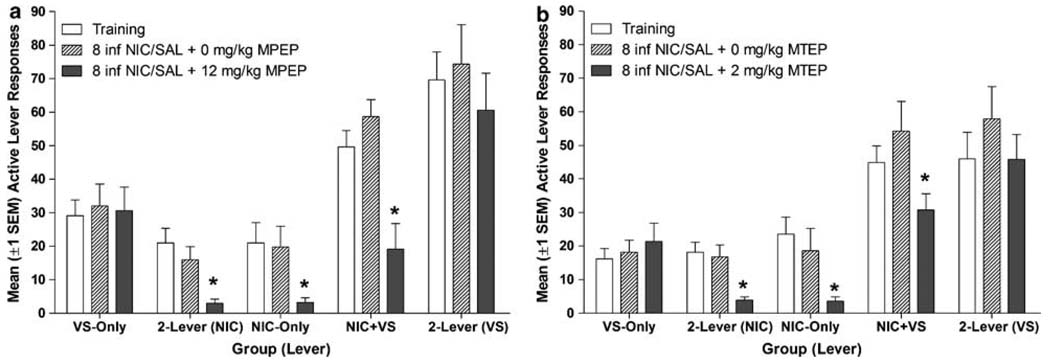Figure 3.
Panel (a) illustrates mean (+ SEM) active lever responding for groups tested with nicotine replacement and 0 or 12 mg/kg MPEP (Experiment 2). Panel (b) illustrates mean (+ SEM) active lever responding for groups tested with nicotine replacement and 0 or 2 mg/kg MTEP (Experiment 4). Since both mGluR5 antagonists reduced voluntary nicotine-intake (see Figure 2), evaluating their impact on the reinforcement enhancing effects of nicotine required experimenter-administered infusions. Thus, rats in the 2-lever, NIC + VS, and NIC-only groups were given eight experimenter-administered infusions of nicotine during the 60-min test period, the VS-only group received eight saline infusions (hatched and solid bars, see Method). The antagonists decreased nicotine seeking but did not affect the reinforcement enhancing effects of nicotine. Both metabotropic glutamate 5 receptor (mGluR5) antagonists dose dependently decreased nicotine seeking. Neither antagonist decreased VS seeking when VS was presented in isolation (VS-only group), or when VS seeking and nicotine seeking were measured with separate/concurrent responses (2-lever group). Rats in the saline-only (Experiment 2) were not included in pharmacological tests.

